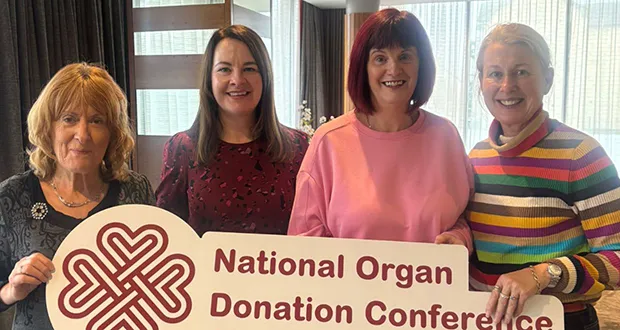Copyright imt

The mother of a young man whose organs were donated after he lost his life in a car crash says that if they weren’t asked about the possibility of organ donation at the time, they may never have considered it. Martina Goggin lost her 26-year-old son Éamonn in Spiddal, Co Galway, in 2006. She told a recent national conference about how important it is for healthcare professionals to have empathy when asking about organ donation, and to be able to answer any questions about the process. “If we had not been asked about organ donation, we may never have considered it,” she said. “At that time, all our focus was on Eamon making it through. “I also feel it is hugely important that whoever from the healthcare profession in the ICU speaks to the family does so with empathy, and has full knowledge of the process, so they can answer the questions that families may have.” Ms Goggin, who established the Strange Boat Foundation with her husband Denis to raise awareness of organ donation, was speaking at the recent National Organ Donation Conference in Galway. Entitled ‘Conversations that Matter’, the meeting was the first since Part 2 of the Human Tissue Act came into effect. This provides a legal framework for organ donation in Ireland for the first time, including a proposed ‘opt-out’ register. “This conference was dedicated to the perspective of the potential organ donor and their family, and to supporting ICU teams who guide families through this profoundly difficult time,” said Gillian Shanahan, organ donation nurse manager for HSE West and North West. “The words we use and the information we share are powerful, they help families make the right decision in accordance with their loved one’s wishes. When a person has added their name to the organ donation opt-out register, or when their family shares that organ donation was not their wish, that decision is always fully respected.” Under the Human Tissue Act, all adults in Ireland are considered to have agreed to be an organ donor when they die, unless they have recorded a decision not to donate on the National Organ Donation Opt-Out Register or are in one of the excluded groups. In those cases the person’s family will not be approached on the issue of organ donation. The conference was organised by hospital-based organ donation nurse managers, who advocate for the potential organ donor and their wishes. More than 100 critical care healthcare professionals from all health regions attended to share experiences and reflect on best practices in organ donation and end-of-life conversations. As part of the Irish Hospice Foundation’s Quality Improvement Initiative, organ donation nurse managers, in collaboration with the National Healthcare Communication Programme, created training videos designed to enhance end-of-life organ donation discussions in ICUs nationwide. “Healthcare delivery is fundamentally a social interaction, placing the patient at the core of its activities,” said Winifred Ryan, HSE national lead for the National Healthcare Communication Programme. “The need to communicate well is magnified in caring situations: when people are anxious, vulnerable or grieving, when they need to trust others to take care of them or their loved ones. When they are trying to process information and make decisions based on this information. This has particular relevance in the context of organ donation, where communicating with families requires careful navigation of their emotions, wishes and concerns as well as the wishes of their loved ones.” Last year, 263 organ transplants from Irish donors took place, while at any given time, approximately 600 people here are on waiting lists for organ transplants. Alceina O’Brien, a transplant recipient, reflected on the lasting impact of her donor family’s decision: “I often think of my donor family. While we were experiencing happiness, relief, and joy, there was another family, parallel to ours, grieving the loss of their loved one, who had made an incredibly difficult decision. I am truly grateful to my donor and their family.” PIC CAPTION



